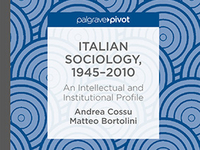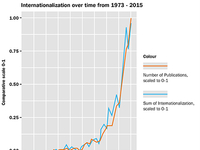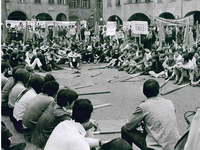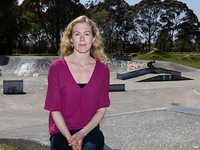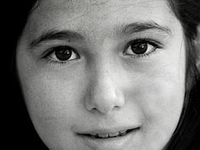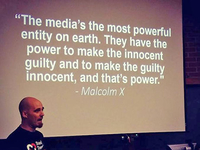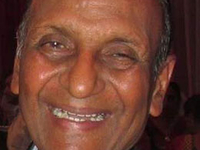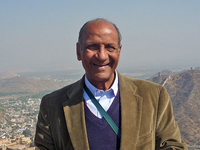GD 7.3 - September 2017
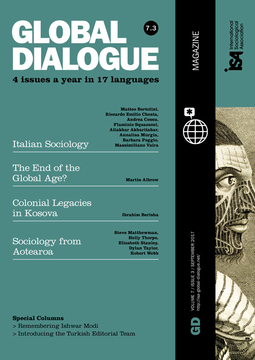
Global Dialogue is available in multiple languages!
Select the language to download the issue.
Editors:
Michael Burawoy.
Associate Editor:
Gay Seidman.
Managing Editors:
Lola Busuttil, August Bagà.
Media Consultant:
Gustavo Taniguti.
Consulting Editors:
Margaret Abraham, Markus Schulz, Sari Hanafi , Vineeta Sinha, Benjamín Tejerina, Rosemary Barbaret, Izabela Barlinska, Dilek Cindoğlu, Filomin Gutierrez, John Holmwood, Guillermina Jasso, Kalpana Kannabiran, Marina Kurkchiyan, Simon Mapadimeng, Abdul-mumin Sa’ad, Ayse Saktanber, Celi Scalon, Sawako Shirahase, Grazyna Skapska, Evangelia Tastsoglou, Chin-Chun Yi, Elena Zdravomyslova.
REGIONAL EDITORS
Arab World: Sari Hanafi , Mounir Saidani.
Argentina: Juan Ignacio Piovani, Pilar Pi Puig, Martín Urtasun.
Bangladesh: Habibul Haque Khondker, Hasan Mahmud, Juwel Rana, US Rokeya Akhter, Toufi ca Sultana, Asif Bin Ali, Khairun Nahar, Kazi Fadia Esha, Helal Uddin, Muhaimin Chowdhury.
Brazil: Gustavo Taniguti, Andreza Galli, Ângelo Martins Júnior, Lucas Amaral, Benno Alves, Julio Davies.
India: Rashmi Jain, Jyoti Sidana, Pragya Sharma, Nidhi Bansal, Pankaj Bhatnagar.
Indonesia: Kamanto Sunarto, Hari Nugroho, Lucia Ratih Kusumadewi, Fina Itriyati, Indera Ratna Irawati Pattinasarany, Benedictus Hari Juliawan, Mohamad Shohibuddin, Dominggus Elcid Li, Antonius Ario Seto Hardjana.
Iran: Reyhaneh Javadi, Niayesh Dolati, Sina Bastani, Mina Azizi, Vahid Lenjanzadeh.
Japan: Satomi Yamamoto, Masataka Eguchi, Izumi Ishida.
Kazakhstan: Aigul Zabirova, Bayan Smagambet, Adil Rodionov, Gani Madi, Almash Tlespayeva, Kuanysh Tel.
Poland: Jakub Barszczewski, Katarzyna Dębska, Paulina Domagalska, Adrianna Drozdrowska, Łukasz Dulniak, Jan Frydrych, Krzysztof Gubański, Sara Herczyńska, Kinga Jakieła, Justyna Kościńska, Kamil Lipiński, Mikołaj Mierzejewski, Karolina Mikołajewska-Zając, Adam Müller, Zofi a Penza, Teresa Teleżyńska, Anna Wandzel, Jacek Zych, Łukasz Żołądek.
Romania: Cosima Rughiniș, Raisa-Gabriela Zamfi rescu, Tatiana Cojocari, Andrei Crăciun, Diana Alexandra Dumitrescu, Iulian Gabor, Alexandra Isbăşoiu, Rodica Liseanu, Anda-Olivia Marin, Andreea Elena Moldoveanu, Oana-Elena Negrea, Mioara Paraschiv, Ion Daniel Popa.
Russia: Elena Zdravomyslova, Anna Kadnikova, Anastasia Daur.
Taiwan: Jing-Mao Ho.
Turkey: Gül Çorbacıoğlu, Irmak Evren.
GD 7.3 - September 2017
Editorial
The Challenge of Global Sociology
As I reflect on my last ten years of engagement with the ISA, I am struck by the continuing influence of the national on the form and content of sociology. We do have an international sociology best represented in the ISA by the array of Research Committees, Thematic Groups and Working Groups. Yet, even these often have a national or regional character. The spontaneous almost primordial unit around which most sociologists gravitate tends to be the nation rather than the globe. We do have a sociology of the global, but a global sociology with a global community is far more difficult to achieve, even in the digital age. Many of the problems we face – refugees, migration, climate change, finance capital, commercialization of higher education – have a global dimension and even though we may study that dimension, even advancing theories of it, forging a specifically global community of sociologists is challenging. In part this is a reflection of cultural and, in particular, linguistic diversity; in part the result of the way civil society – the standpoint of sociology – is constituted nationally by its relation to the nation-state. It is also difficult to straddle the field of higher education, so deeply hierarchical and whose conditions are so divergent across the globe, although, it should be said, disciplinary inequalities can be as deep within countries as between them. Indeed, inasmuch as there is a global community, it is made up of the connection among privileged groups of mobile and well-resourced cosmopolitans that separate themselves from grounded locals strapped of resources.
In this issue we have two contrasting examples of the influence of the national on sociology. Italian sociology has historically been balkanized by attachments to the Church, the Communist Party and the Socialist Party as well as by a long-standing North-South divide. If Italian political science has been discredited by its association with fascism, Italian sociology has been discredited by its association with the Red Brigades and other radical tendencies. New Zealand sociology, on the other hand, has links to British traditions in social policy, and struggles with the country’s internal colonial legacy. It is a small island, fearful of its powerful neighbor Australia.
In short, global influences on sociology are generally mediated by national legacies and fortifications. The positioning of nations in the world has a dramatic influence on the formation of sociology: thus the interview with Ibrahim Berisha emphasizes the colonial experience of Albanians in Kosova while the interview with Martin Albrow focuses on the global influence of Britain.
Since our last issue we have lost one of our most fervent advocates of the integration of national and global sociology. Ishwar Modi was devoted to Global Dialogue and its translation into Hindi as well as a guiding spirit in the internationalization of leisure studies. He will be sorely missed but his project will live on.
Michael Burawoy, editor of Global Dialogue
Global Dialogue can be found in multiple languages.
Submissions should be sent to globaldialogue@isa-sociology.org.

